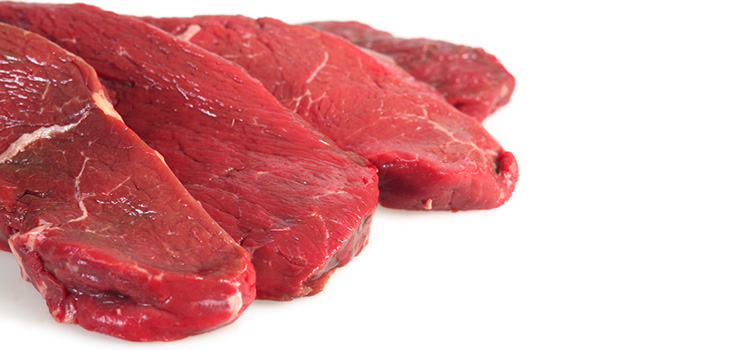Animal Protein Shown to Reduce Bone Fracture Risk

Some individuals believe that protein negatively impacts bone health, but research shows just the opposite. In fact, a recent study shows that individuals with less than 15 percent of their calories coming from protein are nearly at a 3 times higher risk of having a fracture than those with higher protein intake.
Animal Protein Linked to Reduced Bone Fracture Risk
The study, involving 167 adults over the age of 65, aimed to examine the link between protein intake and fracture risk in elderly people. Researchers analyzed vegetable protein intake, animal protein intake, and animal/vegetable protein intake ratio in conjunction with calcium levels.
They found that vegetable protein wasn’t as helpful for fractures as animal protein, and that higher overall protein intake was better than lower protein intake. Animal protein may rise above vegetable protein due to containing many tissue and bone supporting nutrients that do not exist in vegetable proteins.
There is, however, a fine line between healthy animal protein and unhealthy animal protein. The conventional method of raising animals and treating meat today is leading to illness and disease. Conventional livestock are injected with growth hormones and are fed antibiotics.
Animals such as cows are fed genetically modified grain instead of naturally consuming grass. This GM food is not only ruining the animal’s health, but is taking a toll on the health of the consumer as well. Combining these factors with the insane living conditions animals suffer on factory farms makes meat in America the worst meat you could ever consume.
When we eat meat containing antibiotics, growth hormones, and medication, we are essentially eating those things ourselves. In addition, the milk produced by cows also contains what the cows consume. It is estimated that around 1/3 of cows in the United States are injected with Monsanto’s synthetic hormone, rBGH, which means that you have most likely been highly exposed to rBGH if you live in the U.S. or have eaten U.S. dairy products. So not only is conventional meat tainted, but dairy is as well.
